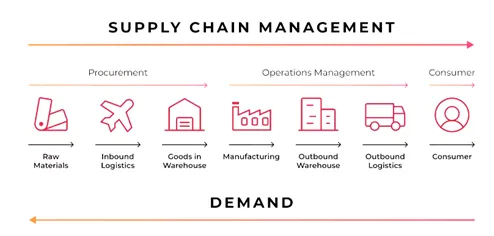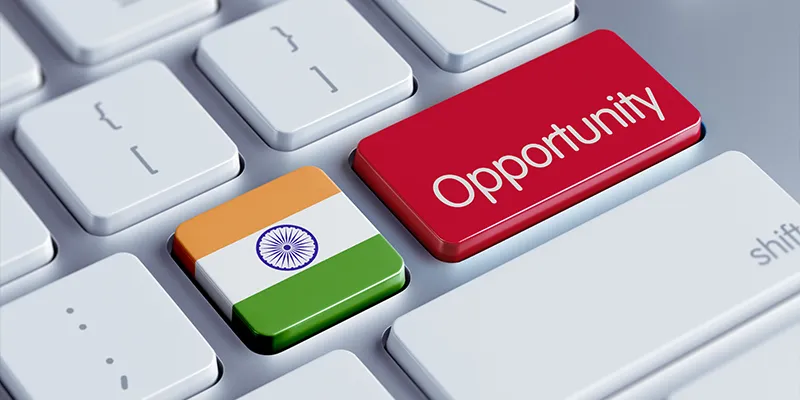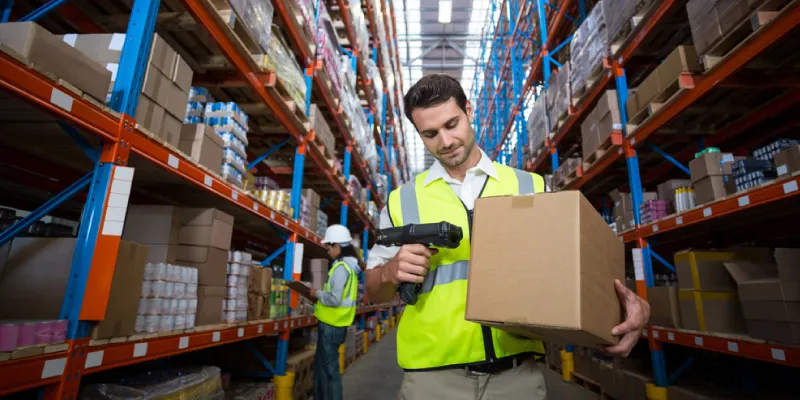Supply chain innovation crucial to keep up with changing business environment, customer preferences
Supply chains have been an integral part of global commerce for centuries, and continue to evolve. Here are some emerging innovations in the field, and impacts in India.
Can you imagine what life would have been if the Suez Canal connecting Europe and Asia hadn’t opened in 1869; or if the Panama Canal connecting the Atlantic and Pacific Ocean wasn’t operational? Due to the recent Red Sea crisis, approximate increase in freight cost from India to Europe and US across sectors, including pharma, automobiles and textiles, has increased 40-50%.
Supply chain has been an integral part of global commerce since centuries. From goods being transported through ancient routes like the Silk Road and Spice Route on animals, to now being transported through diversified routes including drones, supply chain has come a long way.
Even today, the ecosystem is still evolving. For example, the COVID-19 pandemic led to a shift to ecommerce, increasing the need to develop omnichannel distribution. The Russia-Ukraine war and Middle East crisis has taught us the need to diversify our supply chains. With increased uncertainty of geopolitical environment as well as unforeseen events like the pandemic, supply chains need to be increasingly multi-channel, agile, resilient, and dynamic.

The Indian logistics industry is estimated at $250 billion, and expected grow to ~$380 billion by 2025, according to a KPMG report. The sector generates employment for over 22 million people.
India’s freight movement is heavily skewed toward road transportation, which moves 66% of cargo, followed by rail (31%), shipping (3%) and air (1%). This is in contrast to developed economies - in the US, for example, road moves about 39% of cargo and in Europe road moves around 45% of cargo. This suggests that there is a significant scope to improve multi-modal connectivity in India.
About 90% of the sector is still unorganised today, creating a huge opportunity for new age companies to create value. Increasing the share of organised logistics will help reduce logistics costs and drive innovation, which in turn will support domestic as well export growth.
In order to create a seamless growth environment, the Indian government has been at the forefront of regulatory changes as well as large scale investment in the sector. For example, introduction of e-way bills and FAST tags were game changers that reduced paperwork and minimized transportation time through roads.
Initiatives by the government such as the PM Gati Shakti Initiative, introduction of National Logistics Policy (NLP), Multi Modal Logistics Parks, and significant investments to expand the road and rail infrastructure in the country are steps in the right direction. They will help in improving operational efficiencies and formalizing the currently organized sector.

A survey conducted by PwC of the CEOs suggested that nearly 50% of India CEOs are concerned about supply chain disruptions, and around 67% of Indian CEOs are altering supply chains to mitigate exposure to geopolitical conflict and unforeseen circumstances.
Many supply chains used to rely on limited data availability, manual decision-making, and unconnected planning with limited options for customisation. They are now in for an overhaul.
Some of the new and emerging trends which the sector is witnessing include:
• Warehouse Automation: Robotics is increasingly used in warehouses to automate the process of movement of inventory within the warehouse, reducing human involvement significantly. Some of the new ages techniques enhancing warehousing efficiencies include autonomous mobile robots (AMR), automated guided vehicles (AGV), Collaborative robots or cobots, drones, conveyor systems, and specialized accessories for AMRs and AGVs.
For example, Accio Robotics develops mobile robotics system for warehouses and fulfilment centres which automates their entire order-picking process. Dapster AI is building a teleoperated pick-and-place mobile robot for operators of large-scale warehouses. It can reduce labor costs by over 70%, making warehouse operations safer and more accessible.
• Micro fulfilment centres: Consumer behaviour has changed in the last 3-4 years leading to increasing demand for instant fulfilment. This is primarily due to the rise of ecommerce and emergence of instant grocery delivery companies. With the need for companies to offer one-day / two-day delivery, there is a rise of micro fulfilment centres located closer to the end consumer in order to enable faster deliveries.
For example, has been expanding its reach to multiple smaller towns and villages by opening micro fulfilment centres at every district headquarter, thus offering a wider SKU and one-day delivery to retailers. Companies like DTDC are using their on-ground delivery partners as micro fulfilment centres to enable faster and better service to customers.

• Green Initiatives: With increasing need for creating a green supply chain to reduce carbon footprints by corporates, logistics companies are enabling environment friendly alternatives, which include:
a) Use of electric vehicles / alternative fuels in transportation
b) Use of renewable resources in powering warehouses and fulfilment centres
c) Improving processes to reduce emissions – from manufacturing to waste management
d) Using sustainable packaging to reduce environmental impact.
Radio cabs like and are leasing green vehicles from fleet companies. Similarly food and grocery delivery companies are converting their two-wheeler fleet to electric. EVIFY, a tech-enabled green logistics company combines technology solutions and logistics infrastructure to offer various services to delivery players in FMCG, ecommerce, and other industries keen to replace traditional vehicles with EV fleets.
Some companies specialise in studying the entire supply chain of the company and suggest various initiatives to reduce emissions. Their services extend from consulting, execution to tracking.
• Drones: Drones have recently been adopted in last-mile delivery. They significantly reduce last-mile delivery costs and increase the delivery speeds. They also help in reducing the carbon-footprint as they are battery powered. Aerial logistics drone startup BonV Aero provides aerial vehicles for goods transportation tailored for challenging terrains like the Himalayas. It focuses on the needs of Indian defence logistics, disaster relief, emergency medical services and rapid commerce deliveries.
One of the old and established courier companies, Shree Maruti recently tied up with Skye Air to unveil drone delivery for some of their e-commerce deliveries.
• Technology – a no-brainer, and still a consistent trend: Digitisation has been a game changer in supply chain. It not only helps in tracking and tracing, but data analytics can help to decide which SKUs to produce, how much inventory to keep, where to keep, pricing, and so on. With increasing complexity of supply chains and the added use of technology to manage the same, the use of 5PL providers has been on a rise.
In sum, India is on the path to rise to the top three economies of the world. In this journey, the leverage from improved supply chains cannot be underestimated. With the right regulations, effective investment and innovation, along with collaboration between the government, incumbents and new age companies, we can truly make India the global supply chain hub of the world.
Ratna Mehta is the CEO and Managing Partner of Fundalogical Ventures, an early growth private equity fund.
Edited by Affirunisa Kankudti
(Disclaimer: The views and opinions expressed in this article are those of the author and do not necessarily reflect the views of YourStory.)










